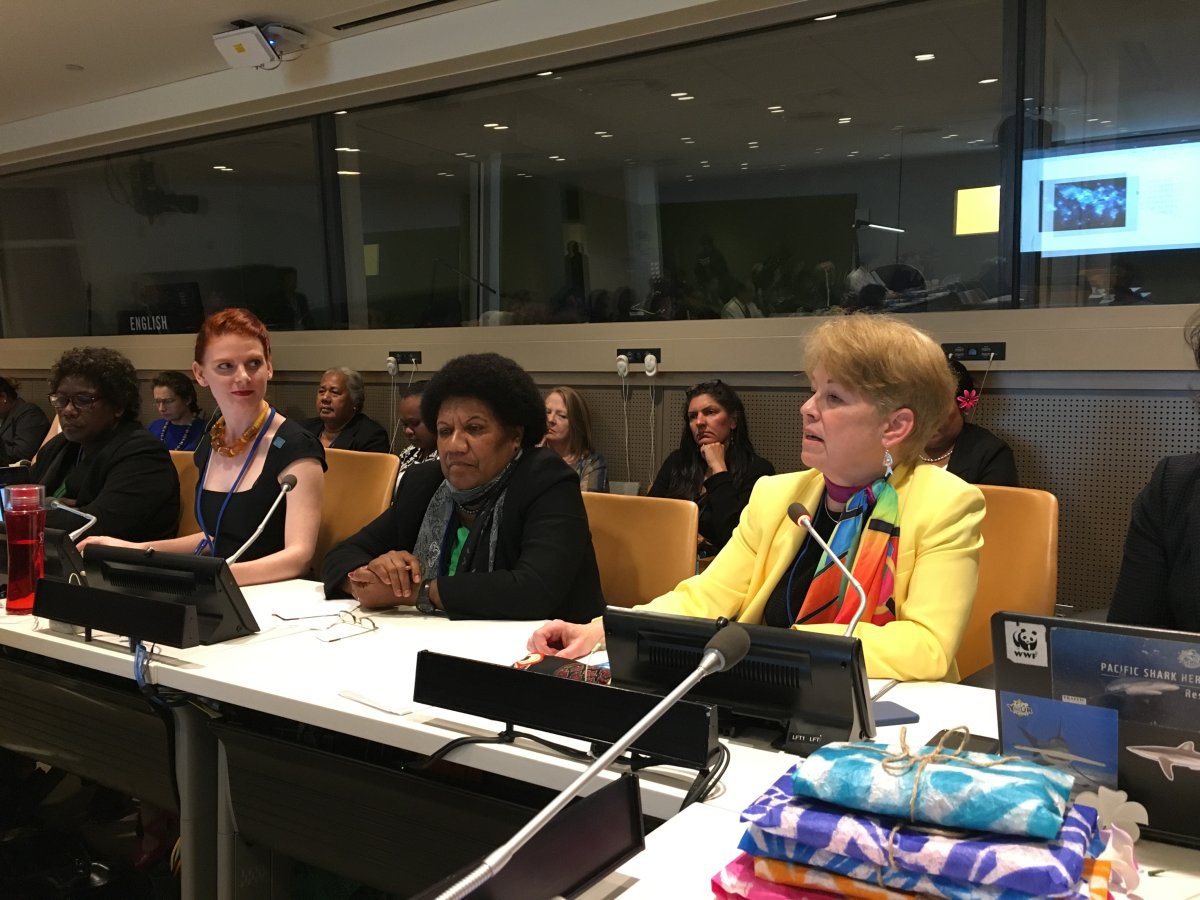An Atlantic Canadian scientist took centre stage at the United Nations on Monday to address the first ever Ocean conference and brought with her a message of female empowerment and ocean literacy.

Dr. Wendy Watson-Wright, an expert in ocean sciences, told the UN that it’s now more important than ever to have an ocean literate population.
“I think people in the past thought that the ocean was so vast, that there was nothing we could do to it, it would always be there,” said Watson-Wright, CEO of the Ocean Frontier Institute, a partnership between Atlantic Canadian universities tasked with long-term research projects for ocean science.
“That is turning out no longer to be the case.”
READ MORE: ‘Unprecedented investment’ in ocean science to create world-leading institute in Halifax
With oceans becoming warmer and more acidic, Watson-Wright wants to focus the attention on teaching youth about the ocean.
Watson-Wright said her hope is that youth educated about the ocean will be able to make “very wise” decisions about the future.
Even though provinces in Atlantic Canada rely on the ocean for their fishing, energy and aquaculture industries, Watson-Wright said the implication of a changing ocean goes far beyond a single region or country.
READ MORE: India and France to fight climate change after U.S. withdraws from Paris climate deal
“The ocean after all is 97 per cent water and covers 71 per cent of the planet… without the ocean, we wouldn’t be here,” she said.
“Personally, I think the planet is misnamed, I think it should’ve been called planet ocean.”
Watson-Wright also wants to see a greater focus on introducing young women to the field of ocean sciences and show that they can become ‘she-roes.’
“In the past, young girls have been a little timid about getting into science, and they haven’t really gotten into ocean issues,” Watson-Wright said. “We need to be taking advantage of 100 per cent of the population, rather than 50 per cent of the population… we need more she-roes.”
World Oceans Day will be celebrated on Thursday.
- ‘Shock and disbelief’ after Manitoba school trustee’s Indigenous comments
- Canadian man dies during Texas Ironman event. His widow wants answers as to why
- Several baby products have been recalled by Health Canada. Here’s the list
- ‘Sciatica was gone’: hospital performs robot-assisted spinal surgery in Canadian first




Comments